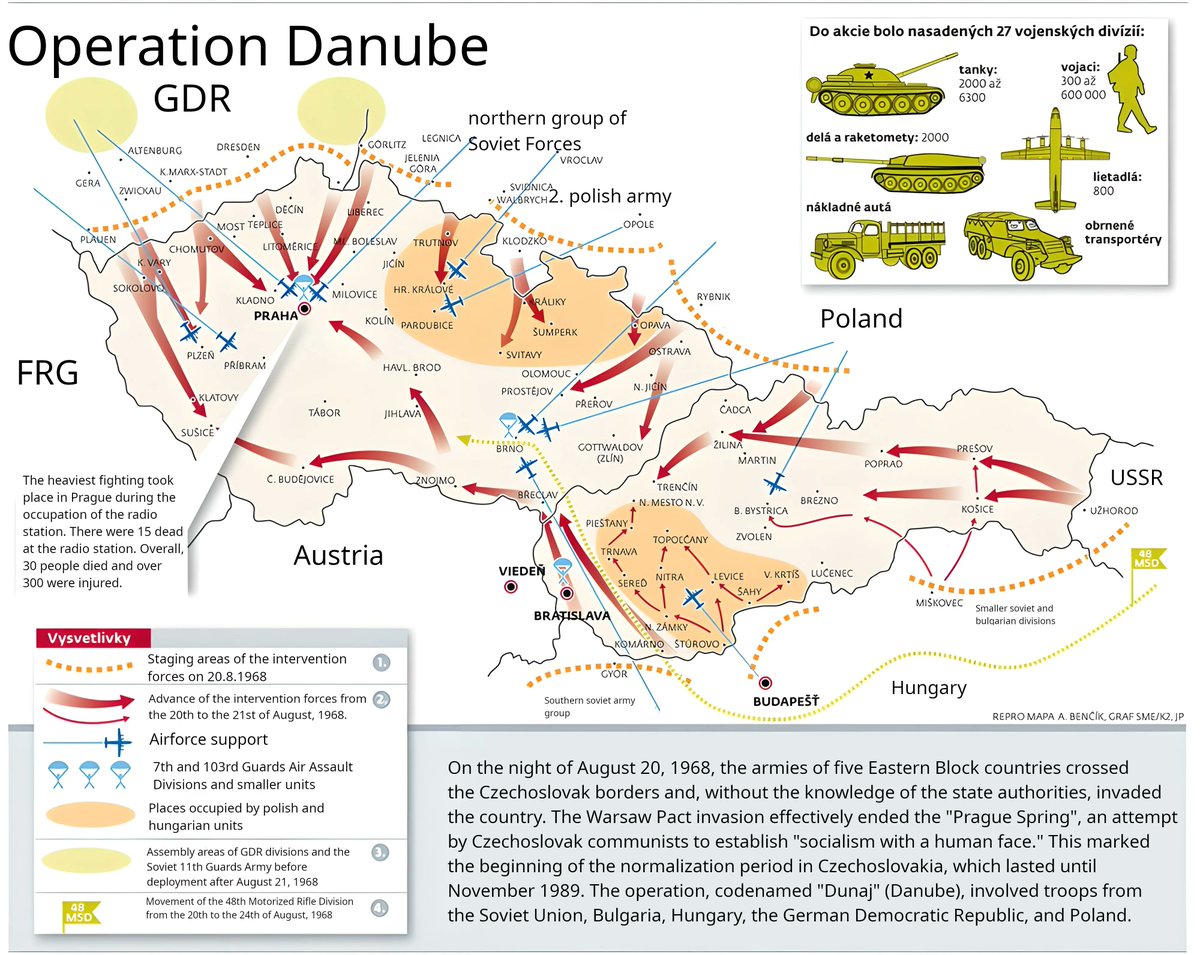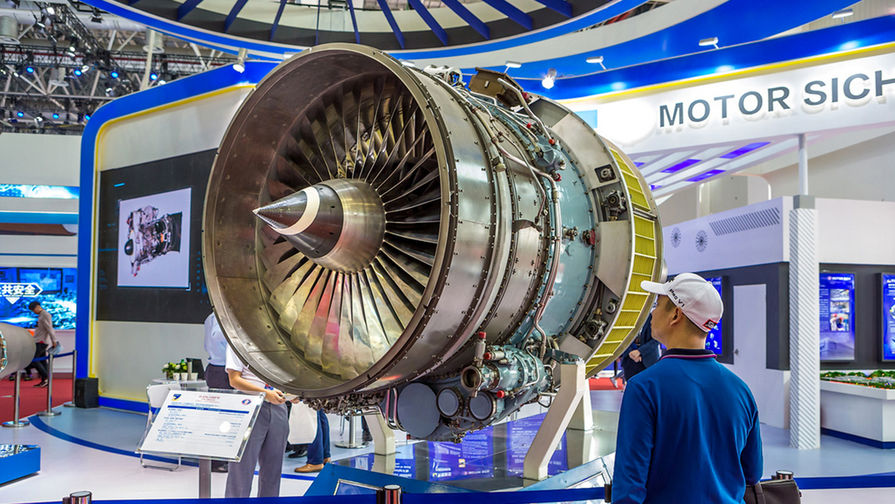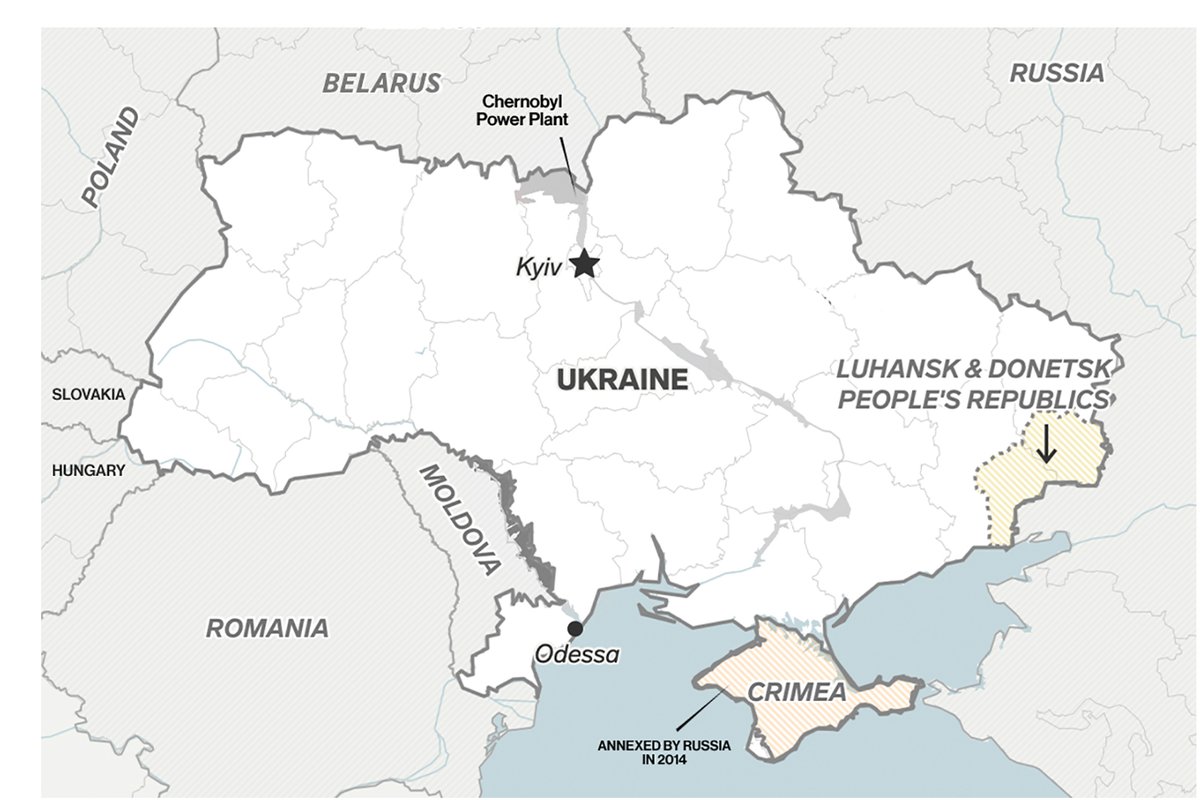Three years of the war have passed
So, let’s recall what has happened so far
The first thing to understand about the Russian-Ukrainian war is that Russia did not plan a war. And it, most certainly, did not plan the protracted hostilities of the kind we are seeing today
So, let’s recall what has happened so far
The first thing to understand about the Russian-Ukrainian war is that Russia did not plan a war. And it, most certainly, did not plan the protracted hostilities of the kind we are seeing today

This entire war is the regime change gone wrong.
Russia did not want a protracted war (no one does). It wanted to replace the government in Kyiv, put Ukraine under control and closely integrate it with Russia
(Operation Danube style)
Russia did not want a protracted war (no one does). It wanted to replace the government in Kyiv, put Ukraine under control and closely integrate it with Russia
(Operation Danube style)

One thing to understand is that Russia viewed Ukraine as a considerable asset. From the Russian perspective, it was a large and populous country populated by what was (again, from the Russian perspective) effectively the same people. Assimilatable, integratable, recruitable 

The Ukrainian industry had also been seen as a major asset. Originally built as a part of the Soviet military industrial complex, it was closely tied with the industry of Russia. The partition of 1991 never really broke the old supply chains: the close collaboration continued across the national borders.

To summarise, Kremlin considered Ukraine as:
a) same people, culturally speaking
b) part of the same economic & military industrial complex
In this regard, Ukraine was seen as a highly valuable and a highly economically compatible asset for Russia.
a) same people, culturally speaking
b) part of the same economic & military industrial complex
In this regard, Ukraine was seen as a highly valuable and a highly economically compatible asset for Russia.
So, the original plan of the special operation had been:
Take control over this asset as swiftly as possible, while keeping it as intact as possible
This plan went wrong. And everything that followed after resulted from this failure.
Take control over this asset as swiftly as possible, while keeping it as intact as possible
This plan went wrong. And everything that followed after resulted from this failure.
Why did the plan fail?
The entire plan (taking it all swiftly & with limited bloodshed) was based on the assumption that the Ukrainians would not fight back, but they did.
So why did Moscow miscalculate so badly?
The entire plan (taking it all swiftly & with limited bloodshed) was based on the assumption that the Ukrainians would not fight back, but they did.
So why did Moscow miscalculate so badly?

I believe that primary reason for that is the quagmire of Donbass. Russia had historically enjoyed strong sympathies in Eastern Ukraine. And yet, when parts of it went under the Russian control after 2014, they were not offered any favourable or even reasonable conditions. 

Instead, they were kept in limbo under the power of warlords and militias. The Mad Max style governance in Donetsk & Luhansk produced an extremely unfavourable impression in the rest of Ukraine, and became a major factor of its internal political stability after 2022.
Were Russia to offer any reasonable conditions to the Donbass, the subsequent Russian invasion of 2022 would almost guaranteedly face much less resistance than it did in reality
(In fact, full annexation would be seen as a far more reasonable option & would find its supporters)
(In fact, full annexation would be seen as a far more reasonable option & would find its supporters)
So why didn’t Moscow put anything remotely acceptable on the table?
Because of its deficient, post-Soviet political culture, and just as deficient art of strategy
Because of its deficient, post-Soviet political culture, and just as deficient art of strategy
First thing you need to know is that the post-Soviets never take the interests, or position of the other side remotely into their consideration. They just set their own agenda (“what we want”) and try to impose it onto the other side, forcefully.
That is their plan A.
That is their plan A.
And they never have a plan B in case the plan A goes wrong.
(That is the second thing you need to understand about the post-Soviet strategising)
(That is the second thing you need to understand about the post-Soviet strategising)
So, Russia wanted to do a regime change, and wanted to do it swift, and wanted to seize the asset with little bloodshed, as intact as possible. But because it had been so ungenerous, the entire plan went wrong, and Moscow of course did not have a plan B in case it would.
So what was supposed to be a swift, and a relatively bloodless regime change turned into a long, and a very destructive war. It started with a massive failure.
And, as the war progressed, the definition of what counts for the victory in this war was changing.
And, as the war progressed, the definition of what counts for the victory in this war was changing.
Long, arduous, WWI style battles for the mining villages of Donbass were now counted as great wins. And they indeed were, under the new measuring scale (of what counts for success)
But the fact that the scale did change, was a massive defeat hardly anyone predicted in Jan 2022
But the fact that the scale did change, was a massive defeat hardly anyone predicted in Jan 2022
Back then, consensus was that in case of Russian invasion, Ukraine could hold for weeks, or days. Or may be hours.
Hardly anyone predicted it would actually hold for years.
At this point, I don’t see any sign of victory for Russia
Hardly anyone predicted it would actually hold for years.
At this point, I don’t see any sign of victory for Russia
Most likely, Ukraine will exist as an independent state.
And it will not be run by a friendly regime.
Nor will it be integrated. In fact, as the war progressed, Ukrainians were becoming less assimilatable, and less integratable, with every month of the bloodshed
And it will not be run by a friendly regime.
Nor will it be integrated. In fact, as the war progressed, Ukrainians were becoming less assimilatable, and less integratable, with every month of the bloodshed
And that may be seen as the main long term effect of this war. The unity of the Soviet world, unshaken by the partition of 1991, and only partially severed by the quarrels of 2014, has been now firmly broken by the invasion of 2022
Invasion, which went very wrong
Invasion, which went very wrong
What Russia lost is a large, integratable and economically compatible asset. What it gained is a bunch of ruins, Soviet enterprises turned into dust (won’t be rebuilt), the land you have to clear from mines & shells for generations, and the mostly elderly population left behind.
Not to say that it looks like a victory for Ukraine. One great delusion about the war, is to see it as a zero sum game.
(I lose a dollar, you win a dollar)
The war is a negative sum game, and the longer it lasts, the more negative it is getting.
(I lose a dollar, you win a dollar)
The war is a negative sum game, and the longer it lasts, the more negative it is getting.
And the longer this war lasts, the more unrecoverable damage is Ukraine getting.
Did it have a chance to avoid the protracted warfare?
Perhaps. The most realistic scenario would involve a political collapse in Russia
Did it have a chance to avoid the protracted warfare?
Perhaps. The most realistic scenario would involve a political collapse in Russia
Which raises a question of why Russia has been so politically stable, in spite of the heavy losses, heavy humiliation of the early stages of this war, and the massive economic damage it got?
One answer could be:
Because of the deficient, post-Soviet political culture, and just as deficient art of strategy
... of Russsia's opponents. If you think about it, it had been borderline mental, absolutely insane
Because of the deficient, post-Soviet political culture, and just as deficient art of strategy
... of Russsia's opponents. If you think about it, it had been borderline mental, absolutely insane
People are governed by hope and fear, and of these two, hope is stronger. If Russian regime has proven to be internally stable, despite all its failures & shortcomings that is largely because no demographic group, and group of interest in Russia could harbor any positive hope regarding its political collapse combined with a military defeat.
No demographic group did. Some possible exceptions (e.g. religious Tadjiks) only prove the general rule.
No group of interests did, most certainly. And the political stability disproportionately depends upon a few powerful, privileged people.
No group of interests did, most certainly. And the political stability disproportionately depends upon a few powerful, privileged people.
Hardly any of these few could hope to get anything from the political collapse exacerbated by a military defeat.
To the contrary, they had everything to lose.
They had every reason to think they would be hunted down to the last man. No one would negotiate with them.
To the contrary, they had everything to lose.
They had every reason to think they would be hunted down to the last man. No one would negotiate with them.
With exceedingly few exceptions, pretty much everyone in Russia expected a huge & unpredictable downside resulting from the combination of political collapse and a military defeat + hardly any upside at all.
All of that buttressed the regime, securing its internal stability.
All of that buttressed the regime, securing its internal stability.
It is hard to shake off the feeling that the Ukrainian strategic mistakes in this war (set your agenda, and try to impose it forcefully with zero regard to the interests and the stance of the opposite side, while having no plan B in case you can’t) have been exactly symmetric to the original mistakes of Russia, in all the key respects.
The Russian unwillingness to offer reasonable conditions to the East Ukrainian population stabilised Ukraine. The Ukrainian unwillingness to offer reasonable conditions to Russian population stabilised Russia. So when the two politically buttressed forces clash, what will you have in the end?
You have a stalemate.
You have a stalemate.

And this is the reason why I am talking about deficiency of the post-Soviet strategising, rather than the Russian or Ukrainian one. The very fact of a stalemate taking place reflects symmetricity of their approaches, and, therefore, symmetricity of their mistakes.
• • •
Missing some Tweet in this thread? You can try to
force a refresh





